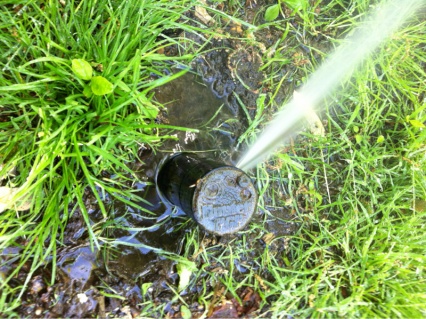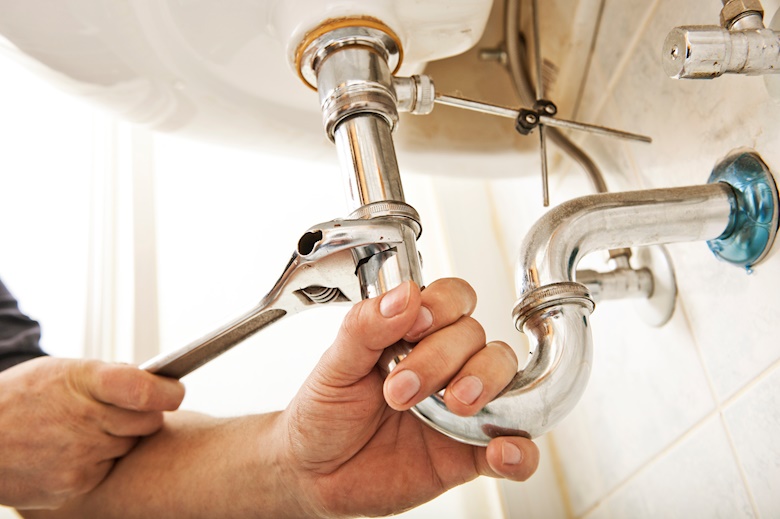The Top 5 Typical Sources of Water Leaks
The Top 5 Typical Sources of Water Leaks
Blog Article
Just about everyone is bound to have their own unique assumption about Reasons for Water Heater Leaks.

"Be cautious of little expenditures. A small leakage will sink a terrific ship." - Benjamin Franklin.
He could not have actually been more right due to the fact that water leakages in our residences result in a waste of sources, increasing our water bills. This increase may seem minimal at initially, it can lead to considerable expenditures that can damage your bank. In addition to a boost in expenses, water leakages likewise cause unwanted organic growth, architectural damage, and also even electric dangers.
Identifying if you have a water leakage isn't always simple because of being not able to see a lot of the pipework in your house. Nonetheless, If you have had a rise in your water bills lately, discovered water stains on ceilings and walls, scented poor odor, and so on. You may wish to think about requesting plumbing services to get it looked into.
There are a number of reasons for water leakages, and also we have actually compiled the typical factors below. Inspect to see if you have had related issues in your home just recently.
Weakened pipeline joints
Pipeline joints are the parts of our plumbing system where the pipes link. They are the weakest factor of our plumbing system. Consequently, they are much more vulnerable to wear and tear. It is vital to note that although pipes are made to withstand stress and also last for a while, they weren't designed to last forever; for that reason, they would degrade gradually. This degeneration might lead to cracks in plumbing systems. A common sign of harmed pipe joints is too much sound from taps.
High water pressure
You saw your house water stress is more than typical but after that, why should you care? It runs out your control.
It would be best if you cared since your average water stress must be 60 Psi (per square inch) as well as although your home's plumbing system is designed to withstand 80 Psi. An increase in water pressure can place a stress on your residence pipes and result in fractures, or worse, burst pipes. If you ever discover that your house water stress is greater than common, get in touch with an expert about managing it.
Deterioration
As your pipework grows older, it obtains weaker as well as much more susceptible to rust after the constant flow of water with them, which can gnaw at pipes and create splits. A visible sign of deterioration in your home plumbing system is staining as well as although this may be hard to spot because of a lot of pipes hidden away. We recommend doing a regular examination every few years and also transform pipes once they are old to make certain a sound plumbing system
Clogged drains pipes
Food fragments, dust, and oil can trigger clogged up drains and block the passage of water in and out of your sink. If undealt with, raised stress within the seamless gutters can end and also create an overflow up breaking or breaking pipelines. To prevent stopped up drains pipes in your home, we recommend you to avoid pouring fragments down the tubes and normal cleaning of sinks.
Busted seals
An additional source of water leaks in residences is broken seals of residence devices that utilize water, e.g., a dishwasher. When such home appliances are installed, seals are set up around water ports for very easy passage of water with the equipment. Thus, a busted seal can create leakage of water when being used.
With little or no expertise of plumbing, understanding your home's plumbing system sufficient to take care of several of these issues (without repercussion) can be a hassle. Get in touch with plumbing experts in Pittsburgh, Providence, Rochester, and environ today, and they'll make those issues go away.
He could not have been extra right since water leakages in our residences result in a waste of resources, boosting our water expenses. If you have had a boost in your water bills recently, saw water spots on walls and ceilings, scented poor odor, etc. A rise in water pressure can place a pressure on your home pipelines and lead to splits, or worse, burst pipelines. Another reason of water leaks in houses is broken seals of house appliances that utilize water, e.g., a dish washer. When such devices are installed, seals are set up around water adapters for easy passage of water through the device.
5 TIPS IN DETECTING A WATER LEAK IN YOUR HOUSE
Water leaks can be hard to find in your home, yet they can be so common. We rely on water every day in our home, which is why a leak can cause big problems. By detecting them early, you can save money and further damage, getting the problem fixed as soon as possible. Here are 5 tips to help you detect a water leak in your home, so you can contact a plumber straight away and get the issue sorted.
Check your water meter
Many people underestimate the value of the water meter in their home. It can be one of the best ways to tell if you have a leak early on, so you can get on top of it before issues start arising. Start by turning off all the water in your home: taps, washing machine, dishwasher, etc. Now take a look at the meter – if it’s still changing with everything turned off, it’s likely you have a fast-flowing leak that you need to get on top of straight away. If nothing changes, then leave your meter for an hour or two and come back to it. Did it change in this time? It’s likely you have a slower leak, which isn’t as urgent but still handy to get fixed so it doesn’t become a bigger problem.
Keep an eye on your bill
Another good way to detect a leak in your home is by keeping an eye on your water bill. It helps if you have a past bill from the same period of time. You can compare like for like and determine whether your water usage has increased significantly. If it has, there may be a leak in your system that you haven’t picked up before. A professional plumber can check through all of your pipes and determine where it is coming from.
Look for damage
If you have a leak inside your home, you will notice damage over time. Take a look at your showers and bathtubs and note whether any of the tiles surrounding the area seem to be discoloured or damaged in any way. There may be water stains, mould or peeling material that has resulted from a build up of moisture over time. Make sure you take a look under sinks at the back of cupboards that don’t get accessed regularly. This is where damage can go unnoticed and build up over periods of time.

We had been shown that editorial about Where to Find Water Leaks from a friend on a different web address. Remember to take the time to distribute this write-up if you enjoyed it. Kudos for your time. Kindly stop by our blog back soon.
Connect for plumbing excellence now. Report this page